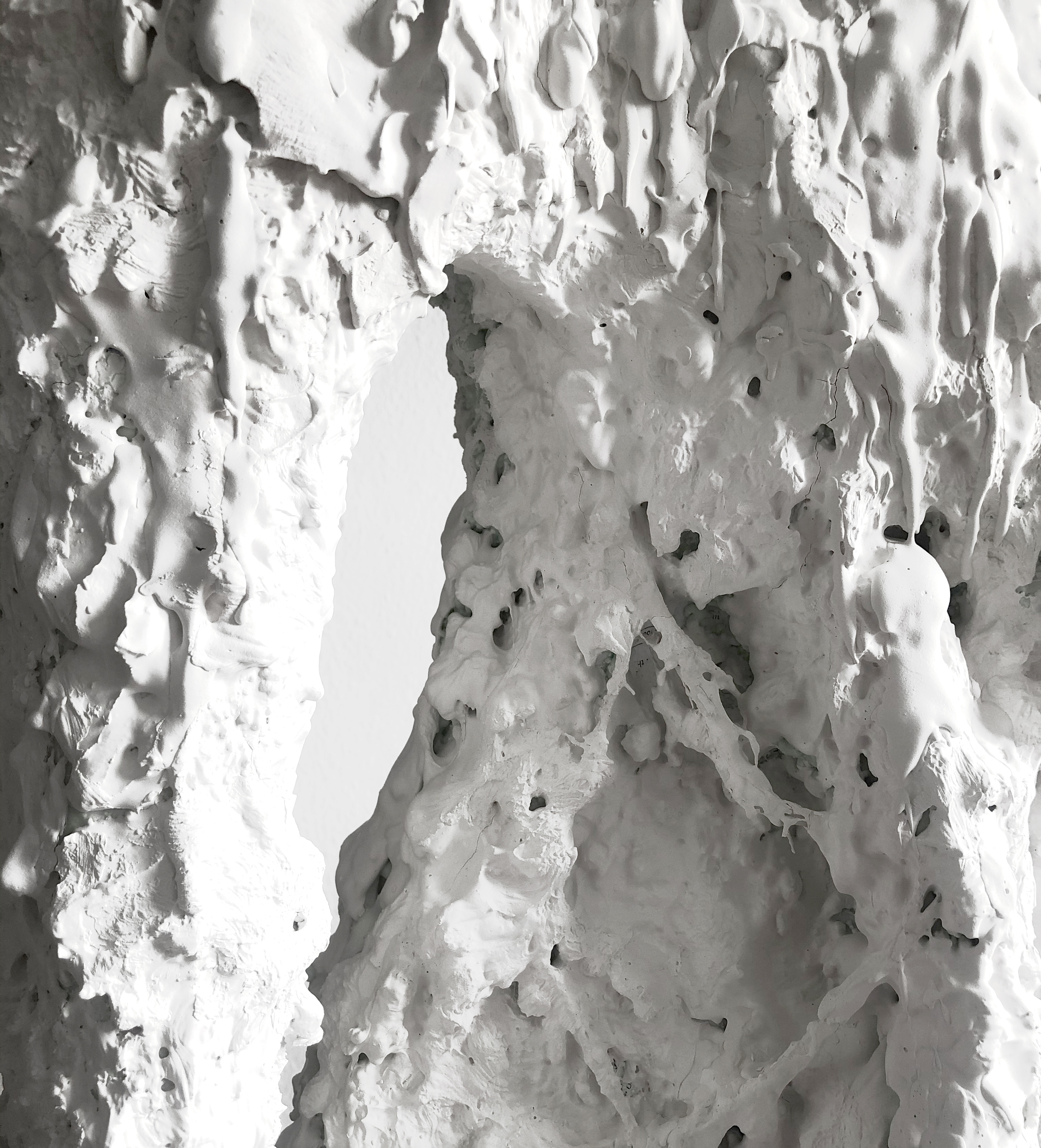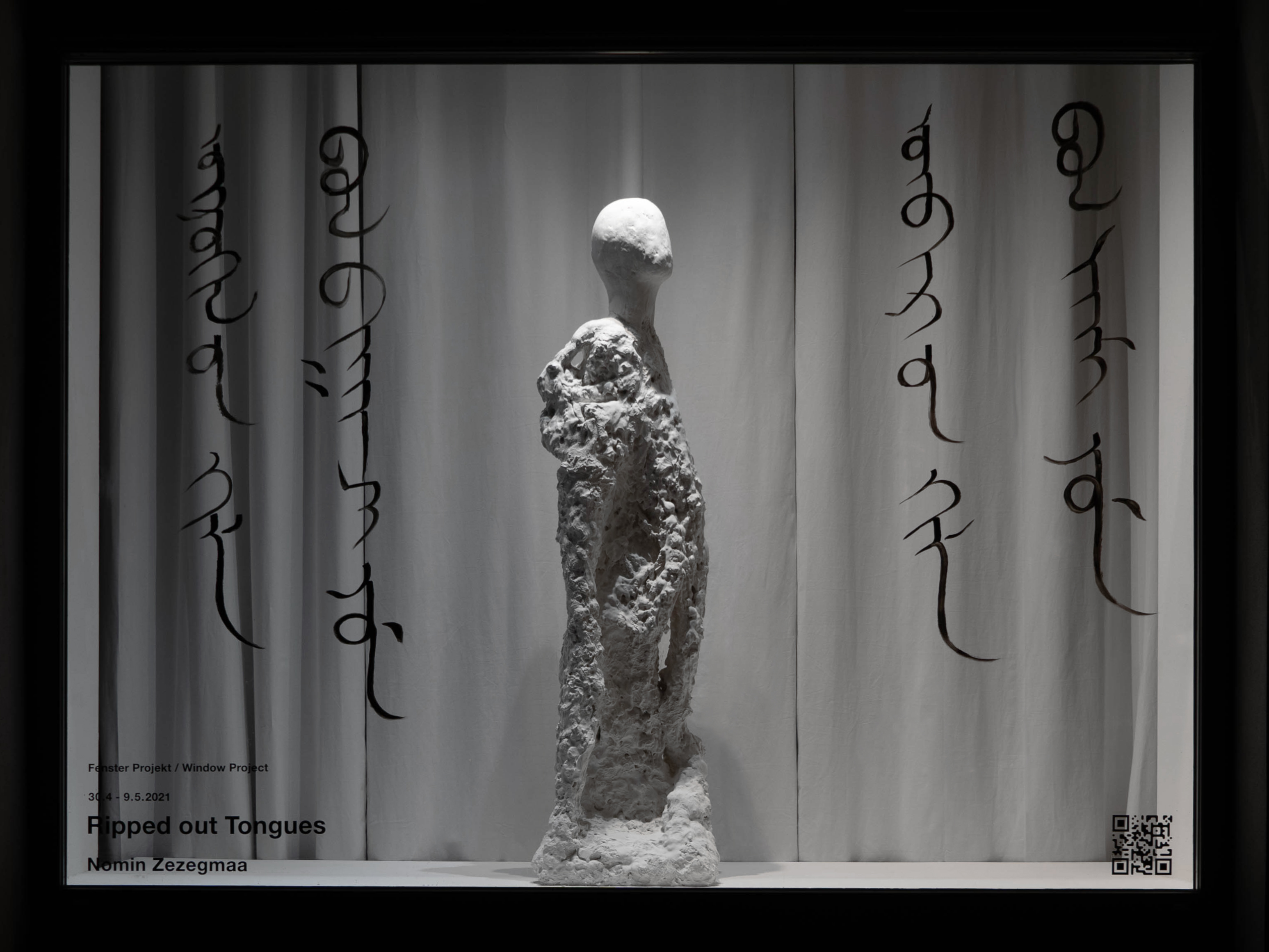Ripped out Tongues
30 APRIL - 09 MAY 2021, Prenzlauer Studio, Berlin, DE

Beginning September, 2020, Southern Mongolians are threatened with cultural genocide following the Chinese Central Government’s aggressive policy of wiping out Mongolian-language eduction.
The scope of the campaign has extended far beyond converting the medium of instruction from Mongolian to Chinese. Government mouthpieces, including the Inner Mongolia Radio and Television Station, have been ordered to replace Mongolian content with Chinese cultural programs in order to promote a ‘strong sense of Chinese nationality common identity.’ One of the campaign’s official slogans, ‘Learn Chinese and become a civilized person,’ has been used to publicly promote Chinese supremacy over the Mongolian language, culture, and identity. In schools, Mongolian students are subjected to military training and propagandist activities. Mongolian college students are forced to wear Mao-style uniforms and sing communist “red” songs to extol the greatness of China.1
The scope of the campaign has extended far beyond converting the medium of instruction from Mongolian to Chinese. Government mouthpieces, including the Inner Mongolia Radio and Television Station, have been ordered to replace Mongolian content with Chinese cultural programs in order to promote a ‘strong sense of Chinese nationality common identity.’ One of the campaign’s official slogans, ‘Learn Chinese and become a civilized person,’ has been used to publicly promote Chinese supremacy over the Mongolian language, culture, and identity. In schools, Mongolian students are subjected to military training and propagandist activities. Mongolian college students are forced to wear Mao-style uniforms and sing communist “red” songs to extol the greatness of China.1
Reacting to the current human rights crisis and the pain of disconnecting from one’s mother tongue, the fourth edition of the Window Project will represent Nomin Zezegmaa’s Ripped out Tongues and Spheres of Forced Forgetting at Prenzlauer Studio.
Zezegmaa’s three-layered, site specific work has a painful focus on involuntarily disconnectedness and (non)relationality to collective heritage: Mongol bichig, the classical writing system and language of ethnic groups of the Greater Mongolian Nation. Ripped out Tongues investigates and gives account to the political, territorial struggles and how suppression forms intergenerational tragic realities, nevertheless imbued with resilience and a reconstruction of collective histories, tongues, and narratives.
Zezegmaa’s three-layered, site specific work has a painful focus on involuntarily disconnectedness and (non)relationality to collective heritage: Mongol bichig, the classical writing system and language of ethnic groups of the Greater Mongolian Nation. Ripped out Tongues investigates and gives account to the political, territorial struggles and how suppression forms intergenerational tragic realities, nevertheless imbued with resilience and a reconstruction of collective histories, tongues, and narratives.

If within the shamanic pantheon one were to draw a spectrum of memories, identity and history embedded within the spirit world—and origin spirits (sahius) emphasize the amalgamation of the hyperpotentiality of re-constructing exactly those, then uheer spirits embody the absolute opposite.
Uheer is a lost, damned soul, whose identity, origin (ug garval), genealogy and memories can never be reconstructed. Its soul is caught in eternal limbo. The agonizing reality of uheer spirits stem from state violence during the Stalinist Great Purge (Их Хэлмэгдэл), the victims of these massacres were thrown into unmarked mass burials, thus never having received proper burial rituals.
The souls of people who have lost their lives in the mass murders wander aimlessly in agony and fury, forgotten who they once were.
The uheer articulates a deeply tragic reality, of memories forever lost, torn apart and destroyed, perhaps even, the memories of having forgotten may be lost too—just like when the tongues of an entire generation is ripped out.
If we forget the history of our tongues, peoples and ancestors, uvug deedes, if we lose the last sanctuary of our collective heritage, our tongues and souls will become just like an uheer. Irreversibly lost and forgotten in the immaterial dark realm of amnesia—forgetting that we have forgotten.
Uheer is a lost, damned soul, whose identity, origin (ug garval), genealogy and memories can never be reconstructed. Its soul is caught in eternal limbo. The agonizing reality of uheer spirits stem from state violence during the Stalinist Great Purge (Их Хэлмэгдэл), the victims of these massacres were thrown into unmarked mass burials, thus never having received proper burial rituals.
The souls of people who have lost their lives in the mass murders wander aimlessly in agony and fury, forgotten who they once were.
The uheer articulates a deeply tragic reality, of memories forever lost, torn apart and destroyed, perhaps even, the memories of having forgotten may be lost too—just like when the tongues of an entire generation is ripped out.
If we forget the history of our tongues, peoples and ancestors, uvug deedes, if we lose the last sanctuary of our collective heritage, our tongues and souls will become just like an uheer. Irreversibly lost and forgotten in the immaterial dark realm of amnesia—forgetting that we have forgotten.
#SAVETHEMONGOLIANLANGUAGE
︎︎︎ read the essay
exhibition documentation by Jasmin Volz
